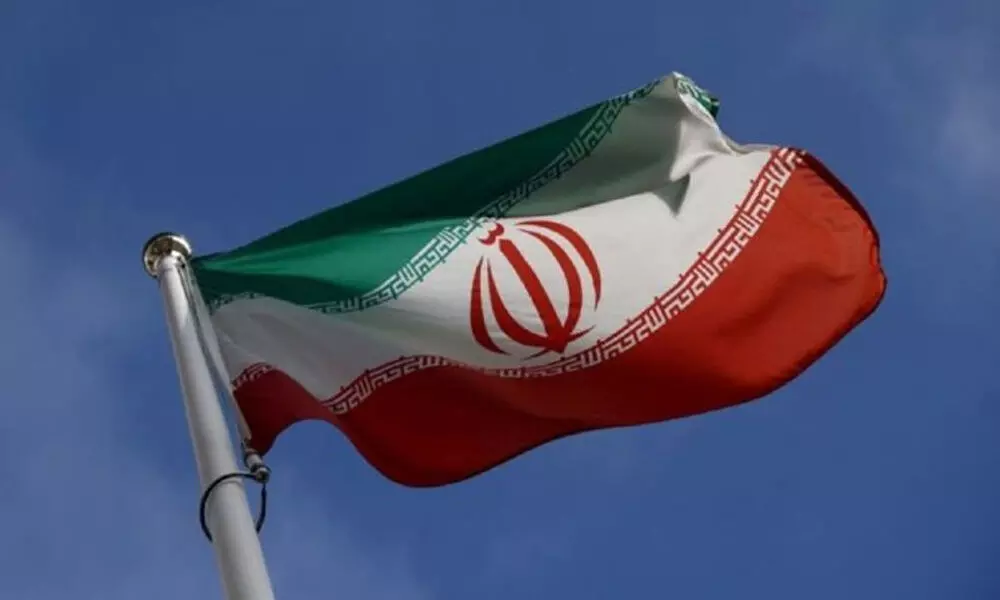Live
- Rythu Bharosa to pick best from PM -KISAN scheme
- Medak wears season’s festive look
- TG sets record in fine rice purchase
- Maintaining India’s growth momentum
- Study Reveals Teabags Release Billions of Microplastics and Nanoplastics, Entering Your Body
- Workplace Wonders: Creative Secret Santa Gifts for Colleagues
- Kumbh Mela 2025: Essential Guide to Comfortable and Respectful Attire for Maha Kumbh
- Hyderabad Real Estate Faces Setback: Property Sales Drop 7% Year-on-Year in 2024
- Gnani’s Gen AI Solutions Revolutionising BFSI
- Congress Party Celebrates Christmas in Gadwal District with Unity and Joy
Just In
Many unanswered questions over blackout at Iran's N-facility


Many unanswered questions over blackout at Iran's N-facility
Iran recently condemned a blackout at its underground Natanz nuclear facility as an act of “nuclear terrorism” and said Tehran reserved the right to respond, but did not specify who was responsible and how Iran may react
Iran recently condemned a blackout at its underground Natanz nuclear facility as an act of "nuclear terrorism" and said Tehran reserved the right to respond, but did not specify who was responsible and how Iran may react.
"The act against the Natanz nuclear enrichment centre shows the defeat of the opponents of the country's industrial and political advancements in preventing the nuclear industry's significant development," Ali Akbar Salehi, the head of the Atomic Energy Organization of Iran (AEOI) said following the incident. Salehi also directly linked the incident with the nuclear deal, saying it was perpetrated by those who oppose nuclear negotiations to lift US sanctions.
This has set the ball rolling off yet another round of vicious campaign. While condemning what it termed as a desperate move, the Islamic Republic of Iran emphasised the need for a confrontation by the international bodies and the (International Atomic Energy Agency) against this nuclear terrorism. Parts of the electrical grid at Iran's main nuclear facilities at Natanz were compromised early on Sunday, in the latest incident to hit the site in Isfahan province, where locally developed centrifuges are reportedly assembled after it was hit by a large explosion last July.
There was no loss of life or environmental pollution as a result of the incident. After the explosion last year, Iran said "sabotage is certain", adding there were strong suspicions that "internal agents" played a role. But the government, citing security concerns, refrained from disclosing additional information. Malek Shariati Niasar, a Tehran-based lawmaker who serves as spokesman for the Iranian parliament's energy committee, wrote on Twitter that the incident was "very suspicious", raising concerns about possible "sabotage and infiltration".
He added lawmakers were pursuing details of the incident as well. As usual, the UN nuclear watchdog said: "We are aware of the media reports. We have no comment at this stage." Israel's Kan public radio cited intelligence sources as saying that Israel's Mossad spy agency had carried out a cyber attack at the site. Israel made no official comment on the incident.
Citing the intelligence sources, Kan Radio said the damage at Natanz was more extensive than had been reported in Iran. The development comes as Iran and world powers recently concluded the first week of "constructive" talks in Vienna to restore the country's 2015 nuclear deal. Natanz suffered a mysterious explosion at its advanced centrifuge assembly plant in July 2020 that authorities later described as sabotage.
Iran now is rebuilding that facility deep inside a nearby mountain. Israel, Iran's regional archenemy, has been suspected of carrying out that attack as well as launching other assaults, as world powers now negotiate with Tehran in Vienna over its nuclear deal. The allegations of Iran do not stop with attacks on its facilities.
It has also blamed Israel for the killing of a scientist who began the country's military nuclear programme decades earlier. The Stuxnet computer virus, discovered in 2010 and widely believed to be a joint US-Israeli creation, once disrupted and destroyed Iranian centrifuges at Natanz. So if it is Israel that is the suspect, obviously the US too becomes a suspect. If nothing, the US would at least have sanctioned the act.

© 2024 Hyderabad Media House Limited/The Hans India. All rights reserved. Powered by hocalwire.com






